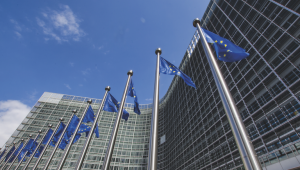The trade union found from a survey, released yesterday, of 1,700 European Economic Area doctors that 45% were considering moving to another country while a further 29% were unsure if they would stay in the UK.
This was an increase on a survey the BMA conducted earlier this year, which found that 42% were thinking of leaving and 23% were unsure.
Brexit was the main reason given by these doctors for their potential exodus - 19% of respondents cited the UK’s decision to exit the EU as their reason for doing so.
This comes after repeated assurances from Theresa May that EU citizens can stay in the UK.
However only 9.5% of doctors said they were currently confident of a positive outcome for their rights as citizens and more than three quarters of respondents [77%] said that a negative outcome following the Brexit negotiations would make them more likely to consider leaving the UK.
The BMA noted that there are approximately 12,000 EEA doctors working in the NHS in England – 7.7% of the UK medical workforce.
Further findings from the survey showed that 15% of doctors said that ongoing uncertainty over their future immigration status was driving their decision to potentially leave.
In August the government pledged to train an extra 1,500 doctors a year by 2020 but concern has been raised that more needs to be done to ensure EU doctors currently working here feel encouraged to remain.
Saffron Cordery, the director of policy and strategy at NHS Providers, said: “[The government] should also provide assurance on immigration policy so trusts can continue to recruit overseas while we strengthen our workforce here.”
Andrew Dearden, BMA treasurer, said: “We need clarity on what the future holds for EU citizens and their families living in the UK, and an end to the uncertainty and insecurity that could see many voting with their feet.”
In September a leaked Home Office document suggested a new immigration policy would be relaxed for those migrants seeking to work in the health and social care sector.
The Department of Health disputed the BMA’s figures citing recent data from the General Medical Council, showing a slight year-on-year rise in 2016-17 in the number of EEA doctors joining its medical register.
A government spokesperson said: “This survey does not stand up to scrutiny. In fact, there are actually more EU doctors working in the NHS since the EU referendum, more EU graduates joining the UK medical register and 3,193 more EU nationals working in the NHS overall.”
Earlier this year the Nursing and Midwifery Council reported a 96% drop in the number of EU nurses registering to work in the NHS following the EU referendum.
The NHS needs at least an extra £4bn to stop patient care deteriorating, leading health charities have stated.
Analysis from the Health Foundation, The King’s Fund and the Nuffield Trust, released last week, showed current spending plans fall well short of what the NHS needs based on an assessment of Office of Budget Responsibility projections and historic rates of funding growth.
The charities said based on the government’s current spending plans, there will be a funding gap of at least £20bn by 2022/23.
Funding per person is expected to fall by 0.3% in 2018/19 while NHS budget growth is falling to the lowest rate in this parliament and one of the lowest in the history of the health service.
Chris Ham, chief executive of The King’s Fund, said: “The message is clear - unless the government finds the money the NHS and social care need, patients, service-users and their families will suffer the consequences.”
The warning also stressed the need to address the £2.5bn funding gap emerging in social care.
Last week the Local Government Association warned that social care services would cost 60p out of every £1 in council budgets by 2020,.
An Institute for Government report which warned that the government was trapped in a reactive spending cycle, jumping from on crisis to another, rather than addressing underlying problems.











